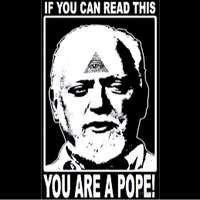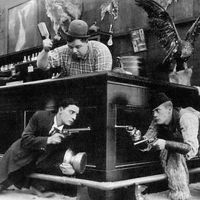Books
-
Thanks for the advice guys. One thing that turned me off about iBooks was that the audio and print version of a book was two separate things. I kind of feel like if I’m spending 20$ on an audio book, it couldnt hurt them to just give me access to the print version as well. Not that I’ve ever read a book on a iPad or kindle, because like @goosehd i prefer rhe physical copies as well.
@jerkules is audible the same?
-
I don’t really listen to audiobooks myself. But I will butt in to say: don’t buy them! Your public library has them for free through Libby or whatever app your system uses. You’ve already paid for it with your tax dollars, and as long as you don’t only want the latest bestseller, you probably won’t even have to wait. Same for regular books, while we’re about it.
-
@sabergirl can you give me a brief rundown of how Libby works? My local library uses it. But it seems like it’s mostly physical books and not audio.
-
It depends on what your library system purchased how many (if any) audiobooks they have. Most have both things, though.
First install the Libby app.
You have to sign in using your library card number and identify what your library system is.
Once you’re logged in you can browse titles (you can limit search to audio if you like). Find a title you want, and there’s a copy available you just hit borrow. If the licensed copies are all checked out, you hit “place hold” and will have to wait until it’s available. The app will send you a message when your hold is available to check out. Don’t wait to check out your hold, or else it will send it along to the next person in a couple days.
Once you’ve borrowed a title it’s on your shelf, and you can read it at will. Pretty sure you get three weeks with most things. You can read directly in the app, download, or “read with kindle” which has the intermediate step of logging into Amazon before you can download and read with the kindle.
Anyway, it’s really very easy, and a librarian at your local could easily walk you through it!
-
@sabergirl that’s perfect thanks. I’ve always been a physical book guy but I might need to try a kindle now.
-
Next Friday the 16th will be Bloomsday.
30 years ago I tried to read the Ulysses, it was impossible.
20 years ago I made the second attempt, I failed
10 years ago, I got the first chapter and then I quit
In February 2022 I started reading it again, this time I managed to finish it on June 16, 2022.
It was like climbing the highest mountain on earth. Now every June I will reread a chapter to celebrate it.
I am now looking at how to tackle Finnegans Wake.
James Joyce followers…. ¿Any advice?
-
@Mizmazzle I think you’ll enjoy it but man it does make you scratch your head at what people will do for money. Pretty ugly stuff
-
Next Friday the 16th will be Bloomsday.
30 years ago I tried to read the Ulysses, it was impossible.
20 years ago I made the second attempt, I failed
10 years ago, I got the first chapter and then I quit
In February 2022 I started reading it again, this time I managed to finish it on June 16, 2022.
It was like climbing the highest mountain on earth. Now every June I will reread a chapter to celebrate it.
I am now looking at how to tackle Finnegans Wake.
James Joyce followers…. ¿Any advice?
I read Ulysses in grad school, in a Yeats/Joyce seminar. I'd like to pick it up again (and still have my original copy) as I find I'm a better reader than I was half my life ago.
On the topic of big, difficult books: I've tried The Recognitions a couple of times and failed. That feels like my next big climb.
But back to Joyce, the guy who taught the seminar I took was Heyward Erlich, who was pretty well known in Joyce circles--I think he was head of the James Joyce society at some point. Anyway, regarding Finnegan's Wake he said no one reads it, even scholars. They'll pick up passages and sections but it's nigh impossible to read in any linear way as if it were a novel.
-
The problem with Joyce is that, not only do you have to be educated in the classics (and I’ve forgotten a lot of that stuff), there is so much contextual reference to the time and place in which he was writing that it is very difficult to understand exactly what he means. Especially considering how there are so many layers of meaning and as you mention the nonlinear storytelling.
It’s a struggle at least for me. I wish it weren’t because he’s a beautiful writer.
-
@setandsetting , your advice seems reasonable. Thank you
-
@mclaincausey, that’s true… languages, history, politics, sociology,... nuances
-
@mclaincausey said in Books:
The problem with Joyce is that, not only do you have to be educated in the classics (and I’ve forgotten a lot of that stuff), there is so much contextual reference to the time and place in which he was writing that it is very difficult to understand exactly what he means. Especially considering how there are so many layers of meaning and as you mention the nonlinear storytelling.
It’s a struggle at least for me. I wish it weren’t because he’s a beautiful writer.
Not to mention that he's making puns that require knowing multiple languages to understand.
-
I liked Dubliners. As Mclain points out a classical education aids in reading but jokes about Irish politics of the time are over everybodys head today. If I'd tried reading Finnegan first I wouldn't have read a word of Dubliners
-
@steelworker Dubliners is a good read, wonderful stories.
-
Currently on a dark/gothic western kick, and just wrapped up McCarthy’s (RIP), Blood Meridian. Absolute masterpiece.






